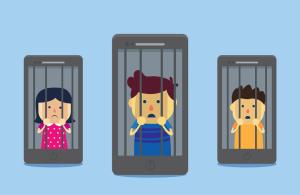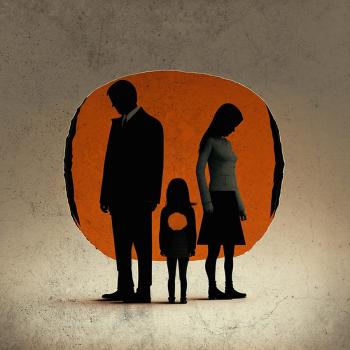
I had the tremendous privilege of growing up without a cell phone. In 1970s and 80s Britain, there were only 3 – 5 channels on the television, and as a child, I played out in the streets with the other neighbourhood kids, making up games, exploring, and riding our bikes. My brothers and I attended a vibrant youth group at our local church, and digital distraction was barely a footnote in our lives.
As an adult, I embraced digital media, and like most people I know, slid into compulsive cell phone use, social media scrolling, and mobile gaming. I’m not a naturally disciplined person, which makes this a particularly pernicious trap for someone like me, especially when there is much about social media that is useful. I’ve always held to a middle line on the issue, considering dire warnings about addiction to be hyperbolic, while also recognising the attrition on my wellbeing through overuse – that is, until my wife and I went to Jamaica for a belated honeymoon.
On the first day of the vacation, I walked into the ocean with my cell phone in my pocket, which finished it off. My initial reaction was frustration – I love taking photos, and on previous vacations, have enjoyed sharing our many enjoyable experiences with friends around the world through social media. My second reaction was a surprise; the absence of ever-present distraction led to feelings of discomfort. I needed something to do with my hands and my brain, seemingly in every moment.
For several days, the discomfort intensified, making me realise that talk of addiction was, in fact, appropriate. I was still able to check social media a couple of times a day, using a laptop in the room, and had hoped that meant I wouldn’t feel any different, but I was wrong. Though social media can no doubt be addictive, I came to realise there’s a much greater addiction at play – addiction to the devices themselves, which we have become utterly dependant upon. We carry them with us everywhere, using them to fill every moment of slight boredom, whether through gaming, scrolling, taking selfies, checking emails, stock or sales reports, bitcoin performance, text exchanges, or anything else.
The blessing of focus
The great harm done to each one of us who looks at their phone dozens of times a day is facilitated by interruption. Some of the best moments of my life were only possible because of the time and attention given to them:
Plumbing the depths of human connection through conversation
I remember an extraordinary night in Athens, Greece, when my best friend Matt and I were befriended by a group of travellers from around the world. We went out to eat in a restaurant in the Plaka district, just below the Acropolis, and ate the most delicious local food (I ordered the swordfish) while bonding on an astonishingly close level. It felt like we’d known each other forever!
Conversations like that don’t just happen. The first part of the dialogue, in which understanding is forged and hearts warm to each other, serves as a foundation for the next, more exploratory phase, in which ideas are exchanged and, as people feel increasingly safe in each other’s company, they let down their barriers and plumb the very depths of human connection. I think of these as ‘sacred ground conversations’, where collectively we become greater than the sum of our experiences and personalities.
Conversations of this sort can become the catalyst for life-changing personal inspiration and friendships worth celebrating – treasures that might remain undiscovered if the unfolding conversation were continually interrupted by digital media. In the modern age, how often would folk glance at their phones, their attention divided by notifications? In my view, this would inevitably derail the organic journey of conversation, leaving its treasures buried. I wonder how many potentially wonderful discoveries, meaningful moments, and precious connections are diminished by our addiction to distraction.
The discipline of prayer
Time in the presence of God is the greatest treasure of my life. As a young man, I reached a place of dissatisfaction with my conservative Evangelical upbringing (along with the version of faith it produced), and embarked on a personal quest to discover the tangible love of God. The Lord is a rewarder of those who diligently seek him, and over the course of several years, reshaped me to know him more deeply. My longings were fulfilled, and to this day, I revel in a daily experience of the transformative presence of the divine, but that quest might have come to nothing if I’d been continually distracted.
In part, it was discomfort that drove me to turn my face to God – I was unhappy, dissatisfied, and bored – but if I could have sedated myself with endless distraction, would I have sought the Lord with such unwavering intent? At the time of my most focussed seeking, I used to spend 1-2 hours in prayer every day – time which was necessary to break down the barriers to trust in my heart, and to slowly learn to yield to the love of God. I’m not saying this is impossible with a cell phone in your pocket, but why incorporate temptation into your devotions?
For me, prayer is something that can only be fruitful if focussed on as a singular activity. Using a cell phone to get inspirational thoughts exposes the user to the distraction of notifications, and because of its many uses, the device itself is associated with work, money, and every relationship we have. It is a black hole of distraction, with the potential to suck us into mental busyness whenever we need to become still.
Everything we love and enjoy
I can’t think of a single treasured activity which is enhanced by the presence of a cell phone – a meal with my wife and stepson, a family reunion, a time of prayer or worship, a wonderful conversation, reading a great book, or even watching a movie or favourite TV program. Many families have rules about when and where cell phones can be used, but let’s be honest – many of us lack discipline and allow boundaries to be crossed.
My stepson’s generation want their phones with them at all times. Taking their devices can cause terrible arguments because we’re blocking access to an addict’s drug of choice. They’re in this position because their parents and guardians allowed this to happen to their own generation, and now tolerate it in their children. What fools we are, allowing ourselves to become dependent on these devices, carrying them everywhere, relying on them in ever-increasing ways. What are the young people we are responsible for missing out on in terms of personal development? What simple joys of human existence are they largely unaware of? One thing’s for sure – I would not have seen this so clearly (or perhaps even at all) if my phone hadn’t ended up in the ocean on our honeymoon. I’d have been too distracted by photography, scrolling, and gaming to find time for reflection.
I’m writing this article in part for myself – something to hold myself accountable to if I slip into bad habits – and partly for others, whose spiritual growth and personal happiness has been diminished or even stolen by addiction to digital distraction. Mostly, I care about the impact of our habits on young people, and hope this will inspire some to make a change in what they permit for themselves and for those they love. Lord, give us wisdom to apply these lessons creatively and gently.













